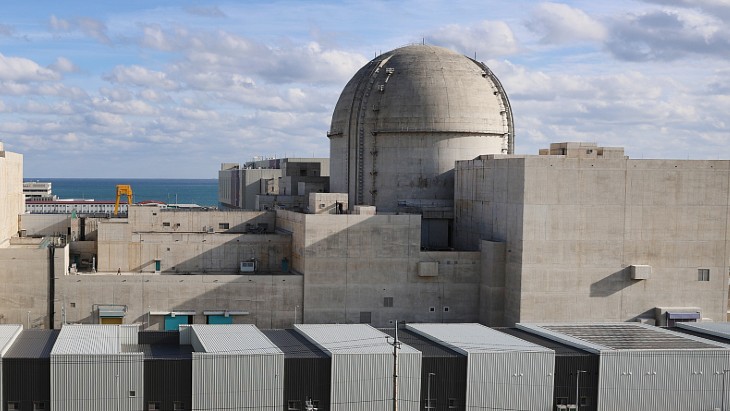USEC has updated the loan guarantee application for the American Centrifuge Enrichment Plant (ACP), while the Department of Energy (DoE) has invited International Isotopes Inc to lodge the second part of its own application for a uranium deconversion facility.
(1).jpg) |
| ACP (Image: USEC) |
The DoE turned down USEC's application for $2 billion in federal loan guarantees for the ACP in July 2009, a serious blow for a project in which USEC had already invested some $1.5 billion at that point (a figure that had risen to $1.8 billion by the end of June 2010). However, DoE subsequently agreed to a six-month postponement of a final review, giving the company time to address the financial and technical concerns that had led to its initial rejection. In the meantime, the DoE has granted a $2 billion conditional loan guarantee to Areva for its planned Eagle Rock centrifuge enrichment plant in Idaho.
Now, USEC says it has submitted a "comprehensive upgrade" to its application reflecting the "significant steps" it has taken to address DoE's concerns. These include a quality assurance review, substantial work and experience on centrifuge machine building and cascade operation, development and engineering work to increase the productivity and lower the unit costs of centrifuge machines, and the attraction of strategic investors from within the nuclear industry.
USEC chairman and CEO John Welch said that the company had addressed "head on" each of the concerns raised by DoE in 2009, and highlighted steps the company had taken to reduce project-related risk factors, including a $200 million investment agreement with Toshiba and Babcock & Wilcox (B&W) signed earlier this year. "The relationship with Toshiba has opened the possibility of additional financing through Japanese export credit agencies, an option we are pursuing," Welch said.
USEC estimates that once a loan guarantee is in place the project will cost a further $2.8 billion to complete and take 18-24 months to begin commercial operation. Funding beyond the loan guarantees and the Toshiba and B&W investments will still be needed, the company warns.
As for progress at the plant, despite demobilising construction and deferring machine manufacture while the outcome of its loan guarantee is still pending, USEC reports that it has continued to manufacture a limited number of centrifuges, with a cascade of about 40 AC100 centrifuges now in operation at the Piketon, Ohio site. It expects to have about 65 of the machines in operation by the end of 2010. In March, USEC signed a $90 million cost-share agreement with DoE to help fund its ongoing technology demonstration and manufacturing activities.
USEC announced its updated loan guarantee application alongside its half-yearly results, which showed a net loss of $2.5 million for the six months to 30 June against an income of $15.2 million for the same period in 2009. According to USEC, these results reflect a decrease in the volume of separative work units (SWU, the measure of work done in enriching uranium) sold over the period because of variability of orders and lower profits on uranium sales. However, the company expects yearly revenues to be around the $2 billion mark, and to break even on the year after ACP expenses are taken into account. It expects to build inventory in the second half of the year for future sales.
Progress for deconversion plant
Meanwhile, the first part of a $65 million loan guarantee application by Idaho Falls-based International Isotopes Inc for a uranium deconversion and fluorine extraction plant has been approved by the DoE, and the company has been invited to submit the second part of its application.
International Isotopes wants to build the plant near Hobbs, New Mexico, to convert depleted uranium hexafluoride (the so-called 'tails' from the uranium enrichment process) into uranium tetrafluoride which it will then use as a feedstock for its own patented fluorine extraction process and the manufacture of high-purity fluoride products.
International Isotopes submitted the first part of its application to DoE in June 2010 under the department's solicitation for renewable energy and energy savings in manufacturing, on the basis of the savings in its fluorine extraction process compared to conventional fluoride gas production methods. "Using FEP, we believe we can produce these fluoride products using just a fraction of the energy typically required to produce fluoride products by conventional means, thereby saving millions of pounds of CO2 emissions each year," said company president and CEO Steve Laflin.
At the same time, the process will help to address the "large volumes" of depleted uranium hexafluoride likely to arise from US enrichment plants, according to Laflin. The company already has an agreement in place to provide deconversion services to Louisiana Energy Services' nearby Urenco USA centrifuge enrichment plant, currently moving towards fully operational status.
Researched and written
by World Nuclear News




_72306.jpg)


_49562.jpg)





